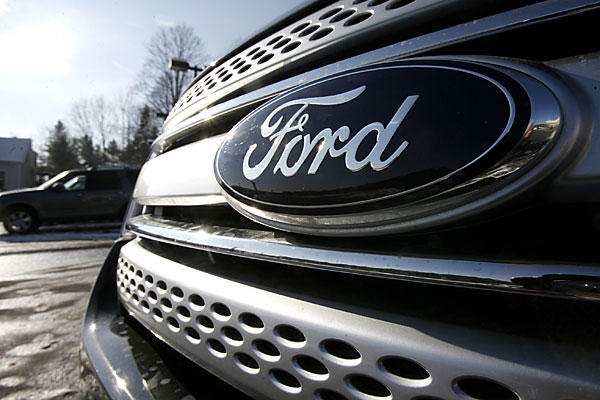Ford Motor Co and Indian vehicle maker Mahindra and Mahindra Ltd said on Monday they will launch a strategic alliance to counter challenges posed by fast-changing technology and global competition.
The agreement, which builds on a former alliance that was unwound in 2005, is another sign that Ford’s Chief Executive Jim Hackett, who took over in May, has begun to steer the automaker in a different direction.
Ford and other global automakers are under pressure as policymakers demand they shift their product lines entirely to electric vehicles over the next two to three decades. One potential benefit to Ford of a partnership with Mahindra is access to lower cost electric vehicle designs and local suppliers it needs to compete in markets such as India.
Ford has less than a 3% market share in India, although its exports from India are expanding rapidly. Near term, Mahindra could help Ford lower its distribution costs or send production work to Ford’s Indian plants.
At the same time, regional automakers such as Mahindra with ambitions to grow need access to technology, strong brands and global distribution networks that established companies like Ford can offer.
Hackett’s decision to no longer go it alone in India follows a move to hire an outsider to run Ford’s operations in China, and shift production of the Ford Focus for the U.S. market to China, instead of Mexico as previously planned. Hackett has also launched reviews of the company’s luxury brand strategy and self-driving car development.
Ford and Mahindra said in a joint announcement they would seek ways to collaborate on a wide range of projects for up to three years. Financial terms were not disclosed. Ford shares rose 0.9 percent Monday.
Ford president of global markets, Jim Farley, and Ford’s head of Asia Pacific operations, Peter Fleet, told Reuters on Monday that teams from the companies will start meeting next week to discuss ways to benefit in the short and medium term.
“We are focused on the now and near with this initiative. We want to work on the opportunities that are right in front of us,” Farley said.
In the shorter term, Ford and Mahindra suggested they could benefit from collaborating on distribution of vehicles in India, pooling purchasing and collaborating on forays into ride services.
Ford and Mahindra had a partnership during the 1990s and early 2000s that involved cross share-holdings.
Ford does not break out results from India, but the company reported a pre-tax loss for the second quarter in Asian and Pacific markets outside of China.
Longer-term projects could include sharing technology or development efforts for electric vehicles, the companies said. For Ford, the Mahindra deal points to a new strategy for dealing with demands from policymakers in many major markets to phase out petroleum-fueled vehicles in favor of electric cars and trucks.
Ford, like global rivals, faces a challenge because electric vehicles engineered for the United States or Europe are too expensive for Indian or Chinese customers. Policymakers in China and India, as well as some European countries, have signaled they want the industry to phase out diesel and gasoline vehicles over the next two to three decades.
(Reuters)




















































